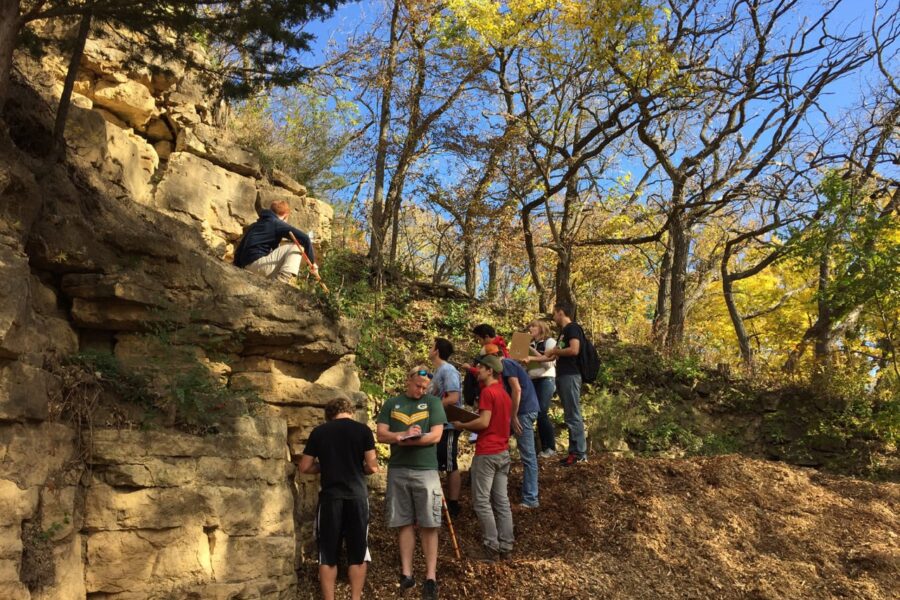The Geology & Geophysics Degree
The Geoscience undergraduate program offers unique opportunities to study Earth and its history, drawing on knowledge from many disciplines in the process. Our students learn skills in historical and sequential thought, inductive reasoning, and three-dimensional spatial thinking.
Our Geology-track students study the physical processes on Earth’s surface and interior to develop an understanding of natural phenomena. Geoscience work is becoming increasingly quantitative and experimental, so we require our students to take foundational courses in mathematics, physics, chemistry, and computer science. Outside the lab, most Geoscience students spend a great deal of time studying the Earth outdoors in the field. There are many opportunities to get involved!
Our geophysics students study the structure and dynamics of the Earth’s interior, developing a quantitative understanding of its mechanics from the shallow crust to deep core. Our courses in geophysics use basic physical laws and processes such as gravity, magnetism, heat flow, and seismic wave propagation to understand how the Earth works. Professional employment in geophysics often requires an advanced degree. Most students who pursue an advanced degree or career in geophysics major in geology, physics, mathematics, or engineering as undergraduates.
Honors in the major
Students interested in earning Honors in the major should consult with and receive permission from the honors advisor. Students should declare their intention to graduate with honors by the end of their sophomore year or the start of their junior year. Honors students are expected to complete a Senior Honors Thesis. Appropriate background courses for the thesis should be chosen in consultation with the student’s thesis adviser. To graduate with Honors, a student must maintain a GPA of 3.4 in all geology and geophysics courses.
Geology & Geophysics Degree Information
Undergraduate Advisor
Sabrina Manero
smanero@wisc.edu
Undergraduate Degree Requirements
All undergraduate students are required to fulfill a minimum set of General Education Requirements. Additionally, background courses include calculus, chemistry and physics. Work with an advisor to ensure that you choose courses appropriate to your interests and career plan. Consult the Guide for specific degree requirements.
Tracks within the major
Geoscience offers several tracks of study: geology; geophysics & engineering geology; environmental geoscience; and a general geology track. Read about tracks in the Guide. A paleontology track is also available with the approval of the Undergraduate Studies Committee. The core courses required for all tracks are:
- GEOSCI 100, 106, or 109, an Introduction to Geoscience
- GEOSCI 202 Introduction to Geologic Structures
- GEOSCI 204 Geologic Evolution of the Earth
- GEOSCI 360 Principles of Mineralogy
- GEOSCI 370 Elementary Petrology

To declare a major
To declare a major in geology or geophysics, students must meet with the undergraduate advisor, Sabrina Manero. Email her to schedule an appointment – smanero@wisc.edu
Careers
Over half of our geoscience graduates work in hydrogeology or the petroleum and mining industries. These jobs require personal adaptability and an unusual breadth of training, often in the form of an MS degree. About one fifth of our graduates work in state and federal geological surveys or in government research activities. These positions work on problems in geologic mapping, mineral resources, groundwater, and engineering. Many Geoscience students continue on to obtain a PhD degree and become faculty members teaching and researching at a college or university. A geology and geophysics major is also appropriate for students interested in careers in elementary or secondary education, environmental policy, or environmental law. For additional information on career opportunities, talk to the Geoscience student advisor.
